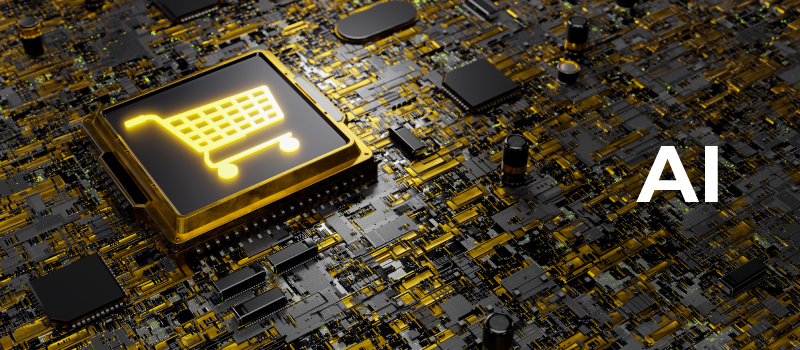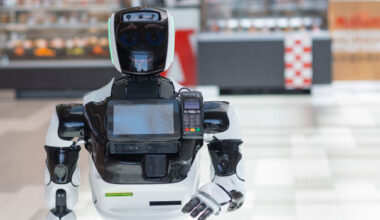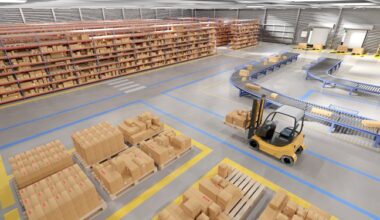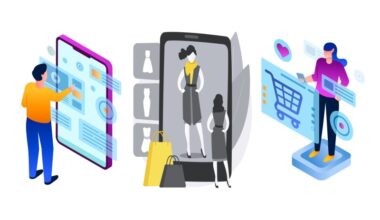
Retail is not a standard commercial transaction-based activity, rather involves multiple layers to it.
The retail business is undergoing continuous development, while retailers are struggling to stay afloat in the face of severe market rivalry and rapidly changing client buying patterns, which can turn out to be difficult to determine.
Retailers are putting money into cutting-edge technology like artificial intelligence (AI), robots, data analytics, and logistics automation to become more customer-centric and responsive to industry trends.
It has evolved into a multi-layered activity that now includes technology to refine its operations and the experiences for the customers. The way retail is structured and run has altered as a result of technological advancements, particularly with the introduction of AI in the value chain.
For years, the retail business has been undergoing a digital change. It has improved speed, efficiency, and accuracy across the board, in an extensive way to enhance data and predictive analytics technologies that enable businesses to make data-driven business choices.
Without the internet of things (IoT) and, most significantly, artificial intelligence, the insights that help businesses make well-informed decisions would not be possible. AI in retail has given firms access to high-level data and information, which they can use to enhance retail operations and create increased business prospects.
AI in the Retail Industry
Artificial intelligence (AI) is rapidly transforming the way business operations unfold daily. Countries are attempting to make smart investments so that operations on a global level may benefit from this transition.
Artificial Intelligence is only the beginning of the trends and their successful integration with retail. Along with Artificial Intelligence, the retail industry continues to reap the rewards of Data Analytics and Machine Learning.
AI Technologies Implemented in the Retail Industry
Despite the widespread mention of artificial intelligence in industries worldwide, many firms don’t completely understand what it entails. When we say artificial intelligence, we’re referring to a set of technologies, such as machine learning and predictive analytics, that can collect, process, and analyze massive amounts of data and use that data to predict, forecast, inform, and assist retailers in making accurate, data-driven business decisions.
These technologies may even function independently, converting raw data acquired from IoT and other sources into meaningful insights utilizing powerful AI analytical capabilities. Behavioral analytics and consumer intelligence are also used by AI in retail to get important insights into distinct market demographics, enhance a variety of customer care touchpoints and predict the behavior of consumers.
How AI has been able to Enhance Operations for the Retail Industry
The initial and the most common thoughts about artificial intelligence may still be robots and science fiction. AI, on the other hand, has progressed significantly. AI is both a subject of research and a blend of technologies in today’s environment that help individuals as well as firms to make better and more well-informed decisions. It’s based on the human brain, which perceives, interprets, and responds to data, learning and adapting over time, mostly through data pattern recognition.
The strength of AI in retail comes from the capacity to leverage this intelligent technology across the customer’s purchasing cycle as well as within your business, allowing you to tap into even more potential and change what’s possible.
Chatbots, cognitive and machine learning, sophisticated analytics, and blockchain, when integrated with connected devices like machines and headsets, can infuse data and insights wherever they’re required. This eventually results in personalized, contextual, and relevant digital engagements based on purchase history, demographic data, location, time of day, and other data sources.
Apart from the business insight and sheer speed that these technologies may bring, the digital revolution in retail is simply drawing the line between the thriving firms and the still-developing firms. There are several advantages of Artificial Intelligence in the Retail Industry, we have listed them below –
1. Create an Engaging Experience for the Users
Retailers must distinguish their product or service and provide consumers with experiences that appeal to the customers to maintain their attention. Retailers may lead with innovation rather than react to change by incorporating predictive analytics to acquire more market knowledge.
When it comes to the most important retail developments of the recent decade, the personalized shopping experience stands out. Businesses have been able to significantly improve customer experience because of the continuously expanding AI technology. The trend has further been refined with smart chatbots and voice assistants driven by natural language processing algorithms.
Some of the most substantial AI advantages will be found in the shops too. Store staff may assist with sales using AI-enabled mobile devices, resulting in improved conversion rates and a better experience for the customers.
2. Better In-Store Experiences
Brick-and-mortar retailers were forced to downsize their on-ground staff and minimize consumer interactions as the COVID-19 infection swelled and lulled. Physical retail businesses can now provide the same level of service that customers have come to expect thanks to conversational AI-powered chatbots.
Customers may use interactive chatbots to get real-time answers to their questions, automate check-out counters with cashless payment options, and streamline the processes and inventory using Real-Time Monitoring.
3. Demand Forecasting
The capacity to pivot and make amends is what distinguishes the successful market players. Organizations are yet to hit the bullseye with the evolving market as trends and attitudes vary every quarter. Retailers can now construct forecast models to assist predict industry trends and making changes throughout their Marketing strategies. This can be done best by mining information from multiple channels such as customer, marketplace, and leveraging the competitor’s data.
4. Create Actionable Insights from Data
Retailers must sift through the noise to translate diverse data sources into consumer-first strategies when confronted with an endless information stream from all elements of their organization.
For years, businesses have attempted to forecast the customer’s next move and determine how the demand curve will shift in reaction to a specific occurrence. With AI algorithms capable of analyzing massive amounts of data, businesses can now not only properly determine which goods a certain client would be most interested in, but also forecast demand for new market entrants.
5. Aligning an Offline and Online Retail Experience
Digital and physical shopping channels often follow different agendas and techniques, but considering them as separate business units creates friction for customers looking for a smooth shopping experience and inefficiencies for retailers.
This further helps the retailers with other factors such as setting realistic timelines, allowing firms to focus on high-value uses and helps to analyze the workforce.
6. Safety and Security
The problem of digital security has become one of the most critical in retail due to the rising percentage of e-commerce sales and the overall trend of digitization. And it is here that AI is utilized by organizations to ensure the security of sensitive data. Neural networks can detect possible weaknesses in a retailer’s environment, prevent money leakage through unsecured payments, and detect procurement fraud, among other things.
7. Customer Service Improvements
Retailers have been able to ensure that interactions with customers do not end at the door thanks to the use of omnichannel marketing.
Building interactive communication channels have increased the quality of consumer engagement activities for retail business owners. For example, Chatbots may ‘speak’ to consumers in a human-like and compassionate manner, assuring a seamless experience. They can also answer frequently asked questions, provide product recommendations, and respond to customer complaints in real-time.
The capacity of a chatbot to capture critical data from client interactions and utilize it to develop meaningful customer profiles remains to be one of the most important aspects. This type of self-learning helps the AI Bot to improve its interactions with consumers, ensuring that businesses do not miss the mark when it comes to human interaction.
Key Takeaways
The AI sector has seen a surge in new entrants throughout the world. These major firms are cooperating with many sectors to provide tailored AI solutions that will help businesses expand at a quicker rate to match the growing demands of the retail industry. The retail business hasn’t been immune to this trend. It has been and continues to use AI-based technologies to handle a variety of tasks.
Explore how AI can improve your retail operations and enhance business prospects and fetch you massive returns. Contact our experts today.






